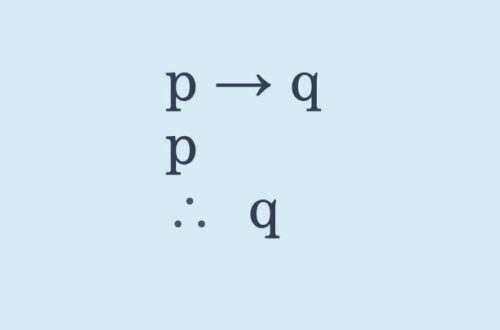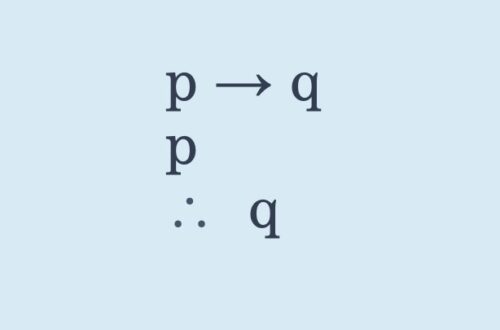“Why Latin? Why Logic? Why only ‘great’ books?”
Such are the questions levied at the classicist. They are good questions, but the best answers are not found in pragmatics, a list of the benefits of a classical education. Instead, the reason anyone ultimately prefers a classical approach to education is that she holds to a classical worldview. I say ‘ultimately’ because pragmatic answers don’t count for nothing. One cannot help using them in class to garner support for Latin verb endings. “Throughout history, the best authors were great Latinists” I said the other day. I had in mind one student whose mother had told me that she would like to be a writer. Motivating a student to say ‘amō, amās, amat…” thirty times a day is one thing, but adopting a clear reason for committing oneself to the classical project is quite another. To do that, one needs to off one’s modern viewpoint and lean into the worldview of a classicist. One can be inconsistent for some desired good, but it is better to attempt to line up one’s assumptions about the world and follow their trail.
In The Mirror of Language, Marcia Colish describes it well:
Most of the classical philosophers whom the Middle Ages knew and regarded as authoritative held that there was an objective order of being prior to the subjective order of knowing. Following their lead, medieval philosophers endorsed the idea of an epistemology grounded in and controlled by its objects of knowledge with equal assurance and vigor. And, notwithstanding the scholastic demand for a theory of cognition explaining man’s knowledge of the world of nature, the object to which medieval thinkers normally addressed themselves was the world of spiritual reality, with preeminent attention to God. The medieval theory of knowledge was a direct consequence of this radically ontological emphasis. Epistemology was conceived as a function of metaphysics. The existence of an objective order of being was the primary condition which was held to make human thought possible at all. Furthermore, medieval thinkers identified being par excellence with the God of the Bible. Thus, they held, the Being of God Himself was the guarantee, the criterion, and the conditio sine qua non of whatever men might know about him, or about anything else (Marcia Colish, The Mirror of Language: A Study in the Medieval Theory of Knowledge. 1968, 1).
In sum, human thought is possible only if there is an objective order of being including God as the ultimate being. If the world exhibits objective order, then the content of our classes ought to be determined by it. Note that the classical worldview begins with God, then moves to created reality, and finally arrives at our ability to know anything.
In contrast, those who followed educational theorist and father of modern education, John Dewey, began with the knower and then asked how education might induce his flourishing. Dewey compared the classical way with a rock. It is static and immovable. Instead, he insisted, education is more like a plant, an ever adapting organism that, given the right environment, will flourish. In his view, unless what you are teaching connects with what a student experiences, it won’t aid flourishing.
Dewey characterizes the difference accurately. The idea driving a classicist is that the body of knowledge we are responsible for is largely unchanging. It grows over time like a library, but it is not revolutionized for the sake of progress. It is rocklike in the sense that a student should knock up against it. It is solid. This is a way of saying that the content of one’s class serves as the measure of things. To be committed to the classical project is to love the rock!
According to the classicist, language functions to mediate reality to human beings. Since reality is ordered by God, then reality is fundementally normative. Such normativity entails a static (and growing) body of knowledge obtained through the careful use of the powers of human learning. Language serves as the means by which one is able to access reality:
“The symbolic theory of knowledge developed in the Middle Ages was cast in terms of the relationship between words, on the one hand, and reality, on the other. It was the attempt of medieval men to reflect, in the mirror of the trivium, what they believed to be the one normative epistemological relationship between man and God.” (4)
Words function to point to reality. If reality is an ordered reality governed by God, then words don’t take on a pragmatic function in education. Rather, they reflect (‘as in a mirror’) the that reality. Again, this entails the unchanging nature ‘body’ of knowledge. Since the very nature of reality remains the same, so does what is said about it:
“The object of knowledge always remains the yardstick against which any statement about it must be measured. Statements are thus held not to be heuristic, or productive of knowledge in the first instance, but expressive of a knowledge of already existing in the mind of the knower. Axiomatic to this epistemology is the assurance of the subject’s anterior knowledge of the object, a knowledge indispensable for his recognition of the truth of the words expressing it… The word of the speaker, although it cannot produce knowledge of the object, can point to it if it is not already in the mind of the subject. If the subject already knows the object, the word of the speaker can recall it to him, making it vividly present in his mind.” (5)
Colish rehearses the views of Augustine, Anselm, Aquinas, and Dante showing how each one developed a theory of language to reflect the normative nature of words, definitions, grammar, and logic.






4 Comments
Sonam Sharma
thanks for this
Anonymous
This comment has been removed by a blog administrator.
qandaeducation
I really enjoy reading your blog as the postings are so simple to read and follow. Outstanding about education and teaching i also visit https://qanda.typicalstudent.org/ here about educational guide !!
Brandon Steven
Hi,
I was always looking for classical education post. Your post provides very much knowledge about classical education. Classical education may refer to Modern, educational practices and educational movements. Thanks for sharing this stuff about Classical education.